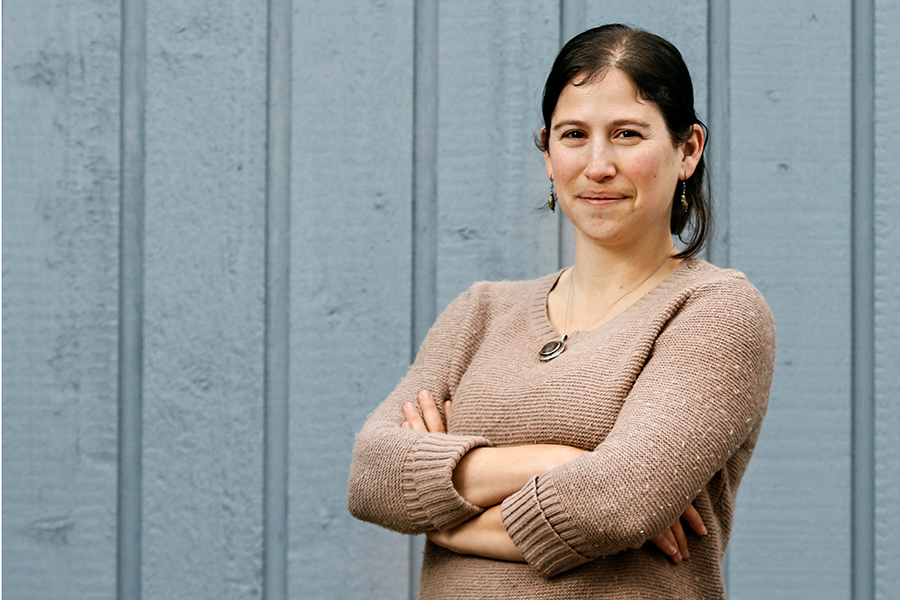Shelters Report Increased Danger Levels for Domestic Violence
The Abbie Shelter has opened its Facebook page for survivors seeking help who can’t call while home with abusers; officials expect a surge in calls after pandemic
By Maggie Dresser
Since Montana’s stay-at-home order took effect on March 26, it’s left most people stuck at home to work remotely or homeschool their kids. But for some people, it also leaves them trapped and isolated in a home with their abuser.
While The Abbie Shelter in Kalispell continues to receive about 100 calls per month, which has remained steady or slightly dropped since before the lockdown began, Executive Director Hilary Shaw says that’s to be expected during the pandemic.
“As soon as things start to pivot back to normalcy, that’s when the surge happens,” Shaw said.
Women who were already in an abusive relationship before the pandemic are likely seeing an increased danger level now that they are stuck at home, Shaw said. But now that domestic violence abuse survivors are unable to escape from their abuser while they are sheltered in place, many don’t have an opportunity to use available resources or call for help.
According to the National Domestic Violence Hotline, one in four women have experienced domestic violence in their lifetime and nearly half of all women and men in the United States have experienced psychological aggression by an intimate partner in their lifetime.
To help those who are unable to make a phone call without their partner listening, The Abbie Shelter has opened up its Facebook page for survivors to seek help, but Shaw says this method might not work for some because abusers often monitor their internet activity.
“The community has given a lot of attention to survivors of domestic violence and that their level of danger is indeed increasing,” Shaw said. “If you are in an abusive relationship and you are stuck at home with your abuser sheltering in place, that obviously creates increased danger levels. However, our 24-hour help line is not seeing an increase in calls and this is to be expected.”
Shaw has anticipated that many survivors won’t reach out until the pandemic is over, so with grant funding from the Whitefish Community Foundation, she has already hired an extra staff member to assist with the predicted surge, which will likely happen when the shelter-in-place order is lifted.
Shaw often hears the misconception that stress is causing people to exhibit abusive behavior.
“The reason why domestic violence sees an increase in times of economic downturn is not because (people) are stressed out; it’s because they’re home more,” Shaw said. “It’s important to know stress is not a cause of violent behavior. We’re all stressed, and for homes where it’s already a dynamic, it’s typical to see (this), but that’s because it’s already a pattern.”
Child-abuse hotlines, too, are seeing fewer calls than normal, which concerns social-service officials. Sheila Hogan, director of the Department of Public Health and Human Services (DPHHS), says that after public schools closed on March 15, calls dropped from 765 per week to 425.
“This decrease in calls is very concerning because teachers and school staff are mandatory reporters of child abuse and neglect, and we know they are one of the main sources of calls to the hotline,” Hogan said in a press release.
While The Abbie Shelter is still operating and has availability for those needing shelter, Shaw says they are conducting interviews and mental health services remotely to prevent the COVID-19 spread. But she says some services, like legal advocacy, cannot be done over a screen.
“That’s the one that will not be able to go completely remote, because when people file for an order of protection, they have to hand in the paperwork in person,” Shaw said.
But Shaw says Flathead County is making sure those who need an order of protection will still be able to get one. The Flathead Justice Court is reviewing applications within about an hour of receipt and people are not required to appear in person for hearings. The court is conducting as many hearings as possible by conference call, Shaw said.
While the order-of-protection process is slightly different now, a court advocate will be there to walk survivors through every step.
“No person should hesitate to get an order of protection because of COVID-19,” Shaw said.
If you are experiencing domestic violence, call The Abbie Shelter’s 24-hour hotline at (406) 752-7273 or message an advocate on The Abbie Shelter’s Facebook page.
The shelter can also be contacted through its website at https://www.abbieshelter.org/.
Correction: An earlier version of this story inaccurately stated that a person filing for an order of protection must be sworn in by a judge. The story has been clarified.